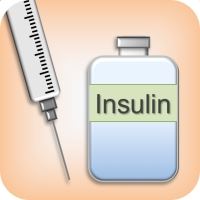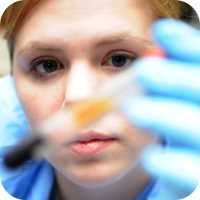
What is Diabetes?
Diabetes is medical condition where the body can no longer control the amount of glucose (a type of sugar) within the blood. There are two types of diabetes, aptly named type 1 and type 2.
Type 1 Diabetes
Type 1 diabetes accounts for almost 10% of all diabetes cases. It is caused by the immune system destroying the cells that make insulin (the hormone that controls the levels of glucose in your blood). Type 1 diabetes can be triggered by viral or bacterial infections, autoimmune reactions or chemical toxins.
Type 2 Diabetes
This is by far the most common cause of diabetes, accounting for just over 90% of diabetes cases. It is caused by the body’s cells becoming resistant to the hormone insulin, reducing the amount of glucose taken up from the blood. Poor diet, obesity and low levels of exercise are thought to be the primary causes of type 2 diabetes.
Diabetes and Male Fertility
Diabetes can directly affect male fertility by damaging the sperm and also increases the risk of developing the following conditions:
- Erectile Dysfunction – not being able to maintain or even get an erection
- Retarded Ejaculation – where ejaculation is delayed
- Retrograde Ejaculation – where the semen goes into the bladder instead of being ejaculated
- Reduced Sperm Quality – damaged and/or misshaped sperm
- Reduced Sperm Quantity – lower numbers of sperm
- Hypogonadism – lower quantities of the hormone testosterone
Diabetes and Female Fertility
In women diabetes can interfere with the implantation of the egg into the womb lining and its normal development, especially in the very early stages of pregnancy. High glucose levels may also interfere with the normal hormonal balance required for a regular cycle.
In addition, type 1 diabetics may have associated problems with autoimmune or thyroid conditions which can also impact upon fertility.
Type 2 diabetics are also more likely to have a condition called polycystic ovarian syndrome, which can have an impact upon fertility.
What are the Chances of Having Diabetes?
Diabetes type 2 (the most common form of diabetes) is on the increase in most western countries, with figures for those developing it increasing every year. Men are also much more likely to develop it than women.
The good news is that you are less likely to develop type 2 diabetes during your reproductive age (18 to 40). However, the rates of young people developing diabetes are increasing, so if you develop any signs or symptoms of diabetes, you should see your doctor.
Diabetes Symptoms

The symptoms of both type 1 and type 2 diabetes are similar. However, in type 1 diabetes there is usually rapid onset of symptoms as the body relatively quickly stops producing insulin. In type 2 diabetes this process is more gradual, and so the symptoms may not be particularly apparent. This means that this type of diabetes is often only diagnosed during routine health checks.
The symptoms that may be present include:
- Being very thirsty and needing to drink more than usual
- Passing urine more frequently
- Feeling very tired
- Weight loss – usually with type 1 diabetes only
- Recurrent infections, especially thrush
- Wounds take longer to heal
Diabetes Diagnosis
There are kits available on the market for self-diagnosis of diabetes, however I strongly recommend against using them at the moment as the results can be difficult to interpret. If you are concerned about the possibility of diabetes, then you are best off speaking to your doctor, who can arrange a professional blood test to look at your glucose levels.
Diabetes Treatment
Type 1 Diabetes is treated with insulin replacement in the form of regular injections. This aims to keep the blood glucose levels as close to normal as possible.
Type 2 Diabetes is treated with a combination of lifestyle changes, such as reducing intake of sugary foods, losing weight if obese, and regular exercise. Tablets may also be prescribed, and in the later stages where insulin production has stopped, then insulin injections may be started.
The good news is that good control of diabetes is usually sufficient to allow you to conceive naturally.
It is very important that women with diabetes who are trying to conceive keep their blood glucose levels as close to normal as possible. Treatment may need to be changed in order to do this. Also the medications may need to be changed as some are harmful when pregnant. It is advised that blood glucose levels are controlled for at least 3-6 months before trying to conceive. It is important to speak to your doctor before trying for a baby, as they will be able to discuss your personal situation further. They may refer you to a specialist diabetic clinic for more intensive support, and you are likely to need more regular blood glucose monitoring during this time.
If there is coexistent polycystic ovarian syndrome, then this is likely to improve with general lifestyle changes and good diabetic control, but sometimes further fertility treatment is also required.
Diabetes and Fertility Associated Problems
If you are a man, you may also want to read up on the following conditions that can be related to Diabetes and fertility:
If you are a woman, you may also want to read up on the following condition that can be related to Diabetes and fertility:
Links to Popular Related Pages









